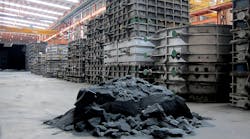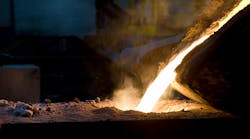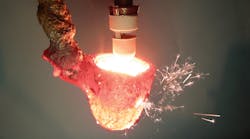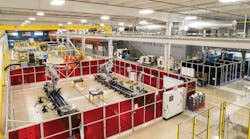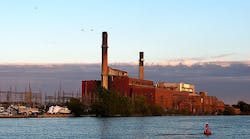The U.S. Department of Labor’s Occupational Safety and Health Administration cited Tonawanda Coke Corporation with two repeated and six serious violations of workplace safety standards, and proposed fines totaling $175,200 for those violations. The citations followed an inspection by OSHA’s Buffalo area office, resulting from the death of a Tonawanda Coke worker on January 6 of this year.
OSHA terminology identifies a “serious” hazard as one from which death or serious physical harm may result, and which an employer knew or should have known exists. “Repeat” violations are those about which an employer has been cited within the preceding five years, at any other facility in federal enforcement states. Tonawanda Coke was cited by for similar violations during OSHA inspections in 2010 and 2014.
Tonawanda Coke produces coke — a high-carbon material produced from metallurgical coal — in a 60-oven battery, at an expansive plant site on the Niagara River. In January, a Tonawanda Coke employee was pulled into the rotating shaft of a coal elevator as he prepared to grease and lubricate the machinery. The man’s jacket was caught, pulling him onto the rotating shaft.
OSHA determined that his death could have been prevented because the employer neither shut down the elevator nor locked out its power source, as required by OSHA's hazardous energy-control, or lock-out/tag-out, standard. OSHA also found that Tonawanda Coke failed to train employees on how to use energy-control procedures.
"Training employees on lock-out procedures and ensuring those procedures are used would have prevented this needless loss of a worker's life," stated Michael Scime, OSHA's Buffalo Area Director. "Compounding this tragedy is the disturbing fact that OSHA cited Tonawanda Coke in the past for not following the requirements of the lock-out standard. Yet, the company exposed both the victim and another employee who greased and lubricated plant equipment to these same hazards. This is unacceptable. It is Tonawanda Coke's responsibility to eliminate these hazards once and for all and protect its employees."
Following the January inspection, OSHA determined that Tonawanda Coke failed to ensure the shut down of power sources for the coal elevator and a machine in the coke-plant battery, and that energy-isolation devices had lock-out devices affixed. It also failed to guard projecting shafts and bolts on the coal elevator against employee contact.
As to the repeat violations, OSHA noted that Tonawanda Coke failed to provide authorized employees with hazardous energy-control training, and to inform them of the location of energy control devices. It stated that the employer failed to conduct and certify an inspection of energy-control procedures, and to ensure the full lock-out of an energy control device. Also, it failed to maintain working surfaces in a clean and dry condition, and to ensure to fully bolt covers of electrical disconnects used in a classified location.
In accordance with OSHA regulations, Tonawanda Coke Corp. was allowed 15 business days from receipt of its citations and proposed penalties to comply, meet with OSHA's area director, or contest the findings before the independent Occupational Safety and Health Review Commission.

